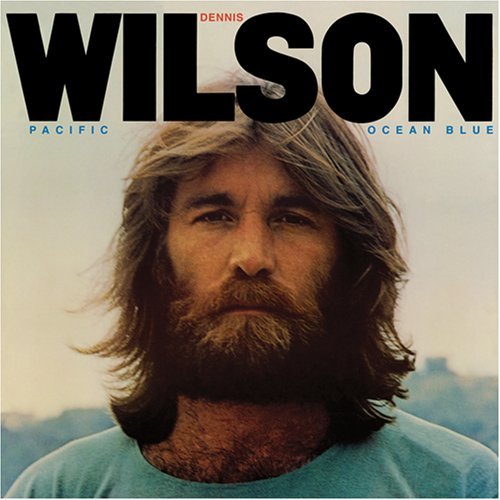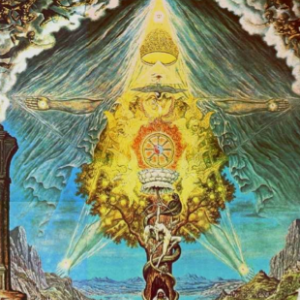
In the Material World
From Christian grunge to hip-hop prophecies to art-pop dharma, spiritual vibrations bombarded the musical universe in 1998. Take the Video Music Awards, normally the great carnal feast of MTV Babylon. Tibetan mala beads dangled from Courtney Love’s mic stand, while Buddhist Boy Adam Yauch called for nonviolent reconciliation with Muslims. Pras wore a cross, Will Smith thanked God, and the Backstreet Boys gave it up for Jesus Christ. But the biggest metaphysical blast came from Madonna, whose Ray of Light record thrums with the singer’s new-found and very public obsessions with yoga, kabbalah, and other forces divine. With a tilak smudged on her forehead, Madonna warbled though a trippy electronica version of “Shanti/Ashtangi,” a Sanskrit sloka derived from Vedic sutras millennia old, while Hindu lovelies in traditional garb pulled Indian dance moves before holy billboards of Krishna, Saraswati, and baby Ganesh.
There is always something vaguely embarassing about pop stars parading their inner lives on stage, and Madonna’s performance seemed about equal parts heartfelt devotion and trendy appropriation. This is not to question the woman’s sincerity: as she heads into her 40s, the material girl’s exuberant narcissism may well have run up against the profundities of motherhood and the fact that extraordinary fame and money do not squelch suffering. It makes sense that she would want to dig for a spiritual touchstone — not to mention purify whatever godawful karma she’s accumulated over the years. Mystical options like yoga and pop kabbalah offer direct access to this deeper essence, without the pesky moral codes of conventional religion. Unfortunately, this search can easily degenerate into another American cult of the self, a cult that already enshrines celebrities as the closest thing mortals come to becoming realized beings.
Madonna is just the tip of the iceberg. Though pop music has always percolated with weird religious energies, we haven’t found ourselves this far into the mystic since the time of George Harrison, Mahavishnu Orchestra, and hirsute Jesus Freak bands. Indeed, as we face down the millennium, the dividing line between the spirit and the entertainment industry is becoming increasingly tough to draw. “In India, the spiritual tradition permeates the popular culture just about to the saturation point,” says David Life, whose Jivamukti yoga studio has attracted everyone from Madonna to Sting to Def Jam’s Russell Simmons. “I don’t think it’s bad to be reminded on a daily basis about the higher potential in life, even in such trivial things as the names of products or the verses in a song.”
Life may be right, but it’s important to recognize just how trivial things can become in the spiritual supermarket. For every Adam Yauch — whose public Buddhism has been restricted to interviewing the Dalai Lama, organizing benefit gigs for Tibet, and slipping dharma slogans like “Every thought in the mind is a planted seed” into his still bratty Verbiage — there are scores of individuals willing to exploit the confusion between star power and spiritual charisma. The recent CD A Gift of Love features megabucks healer Deepak Chopra and a passel of celebrity seekers — Demi Moore, Martin Sheen, Goldie Hawn, and Madonna herself — reading the least challenging verses of the twelfth century Persian poet Rumi over a slimy New Age soundtrack. It’s atrocious to the point of hilarity.
Still, people are buying such trinkets, and they’re doing it because they are fumbling about for meaning. As Alanis Morissette suggests in her video for Thank You, in which city crowds pass by and occasionally touch the naked singer, pop stars can sometimes serve as surrogate spiritual figures for those who reach out to them. “Instead of investing their hearts in a doctrine or an institution, people are working out their spirituality through popular culture,” says Tom Beaudoin, a Catholic theology student and author of Virtual Faith, a book which digs up the loosely Christian themes that course through videos by Nirvana, R.E.M., and Soundgarden. Beaudoin argues that because pop culture is “our amniotic fluid,” it has come to embody the spiritual ethos of a generation, one that is iconoclastic, irreverent, and keenly attuned to suffering.
Like their hippie forebears, today’s pop seekers mostly skip the meat and potatoes of religious tradition in favor of an amorphous spiritual sensibility. The tenor of Jewel’s latest album, succinctly named Spirit, is unabashedly inspirational, almost as if she were making up for her superstardom by uplifting her fans as much as possible. If Public Enemy wanted to be CNN for black folks, Jewel wants to be Oprah for teenage girls, and she’s not afraid to turn it over to a higher power. In the single Hands, the singer begins by affirming her own autonomy: “My hands are small I know / But they’re not yours, they are my own.” By the end of the cut, however, Jewel is down on her knees in prayer, whispering that “we are God’s hands” and suggesting that genuine self-power turns on a deeper pivot. But Jewel’s treacly tones also suggest that the cause of music may not be so well served by the earnest convictions of self-help.
Elsewhere, white boys are belting out more muscular messages of faith and inner struggle. In the video for What’s This Life For, the latest hit from Creed’s phenomenally successful My Own Prison album, we see images of young people in the depths of family trauma and suicidal despair, with members of the grunge band standing in the background like the silent angels in Wings of Desire. But the song ends on a note of patriarchal glory, as Scott Stapp proclaims that “We all live under the reign of one king.”
Though Stapp insists in interviews that Creed does not play “Christian rock,” the Florida band is riding the same crossover wave that has propelled more overtly Christian rock acts like DC Talk into platinum status. Supernatural, DC Talk’s latest, is packed with arena rock love songs to Jesus. But like Creed, and the elders in U2, the band strikes a chord because their Godtalk is leavened with personal testimony. “I’m not giving answers, I’m sharing my struggles,” says singer Toby McKeehan. Though McKeehan admits that today’s spirituality may be nothing more than a trend, he also believes that people are sick of the selfishness of the ’90s. “We’ve been in this state over the last ten years of constantly looking out for ourselves, and now we’re looking for something else, something to take us to the next level as a generation.”
Some music fans are understandably freaked out by the growing power of Christian rock — when Stapp sings about “the unborn,” he’s talking anti-abortion, not White Zombies. But there are many Christianities. Indeed, Tom Beaudoin argues that some of today’s musical searchers are attempting to “take back Jesus from the church.” Beaudoin describes a scene in Puff Daddy’s Victory video, when a wall-mounted figure of Christ turns and looks down at the Puffster. “Jesus on the cross is not set in stone. He can actually come alive and turn to you and address you,” says Beaudoin, before adding a crucial caveat. “This is not to say that Puff Daddy is a theologian.”
Thomist scholar or not, Puff Daddy is rumored to be making a gospel record. Popular black music has always been rich with religious motifs, from the church shouts of James Brown to the Islamic ciphers that circulate through hip hop’s Five Percent Nation. But something does seem to be happening: gospel music is booming, and church boy Kirk Franklin, who jumps from prophetic hip-hop to syrupy R&B, has the biggest-selling gospel record in history. Though criticized by some Christians for his secular cronies and Funkadelic samples, Franklin bears his crossover stardom with insouciant glee. He’s a preacher on a lark.
For spiritual juice, however, Franklin’s holy-roller fluff cannot hold a candle to The Miseducation of Lauryn Hill. With harps and flutes and golden-age Rastafarian harmonies playing like a funky godsong, Hill serves up a “mixture where hip-hop meets scripture:” a gumbo-rap of psalms, karmic laws, black Islam, and Afrocentric imagery. The blend makes sense: contemporary American spirituality is largely a cut-n-paste affair, perfectly in tune with today’s musical mixology. And when Hill names her child Zion or “roll[s] with cherubims to Nassau Coliseum,” we are reminded of the deepest meaning of the mix: the fusion of the cosmos and ordinary life.
Duncan Sheik, a Buddhist since college, took this everyday spirituality to heart when he made Humming, a beautiful record flush with Sheik’s sad and trenchant takes on the absurdities and delusions of contemporary life. His convictions are not telegraphed, but waft through the record like incense. Foreshadowing, the most utopian song on the album, is a secret track. “I wanted to express the idea quietly, and just say, look, it is possible that we are coming to a new time where people will understand the connectedness of all life and understand that all awarenesses are worthy of respect. But as much as I believe in that idea, it’s not necessarily something I want to put front and center on a pop record.” Given the bombast potential of setting God to a groove, Sheik’s tasteful restraint is something more spiritual pop stars may want to mirror.
Originally appeared in Spin




